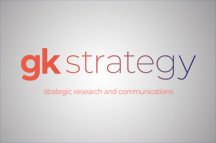Against the expectations of many, Boris Johnson has secured a new Brexit deal with a renegotiated settlement on the Northern Ireland backstop with the EU. Parliament will sit tomorrow to debate and vote on it, and the path to victory for Johnson is narrow and complex. The absence of DUP votes in favour effectively means that the Prime Minister needs more Labour opponents to support the motion, as well as all of the ERG members who voted down Theresa May’s deal to come around to his own. Several did just that over the course of yesterday afternoon and this morning, but the arithmetic remains tight. Some have suggested that attaching a second referendum to the vote would ensure that it passes, but this is unlikely unless Johnson himself proposes it – again unlikely – rather than through an opposition amendment. He will rely on Labour leavers who are not scared of losing the party whip to pass his deal – a small number whose support cannot be guaranteed.
Queen’s Speech outlines legislative agenda
As predicted, the Environment Bill was one of the key items confirmed in the speech on Monday, but it was the focus on local government services and devolution that was perhaps one of the most interesting points from the statement. The Government had previously indicated that it would publish a white paper on devolution, and has committed to a paper that will explore options for increasing the number of devolution deals and elected mayors. This could take a range of forms, from agreeing individual deals as with existing areas to setting out a standard package of powers to be devolved to all local areas. The apparent resurrection of local devolution, which stalled under Theresa May’s premiership, could have significant implications for frontline local services, and how they are funded and commissioned; businesses supplying local government should monitor how it plays out.
Debate rumbles over cost of Labour’s public ownership plans
The CBI kickstarted something of a debate this week when it attributed a nearly £200 billion cost to Labour’s plans to bring rail, energy, water and mail into public ownership. The party has challenged the CBI’s calculations, which are based on the suggestion that a Labour government could end up paying above market value for assets based on precedent from the 1970s. While the exact cost is up for debate, depending on how it is calculated and who makes the decision on valuations, what is more interesting is how the perception of cost and value plays into Labour’s policy-making. Would a larger-than-expected upfront cost for particular assets dissuade Labour from pursuing a change in ownership? The answer is likely to be no. For Labour, lower household bills and reformed workers’ rights will provide value for money even with a higher cost, and the party would re-write Treasury rules to ensure this is reflected.
Jamie Cater, the brains behind a lot of GK’s thinking, leads our policy work across the entire business, supporting our strategic communications work and providing strategic advice to investors during M&A activity.












